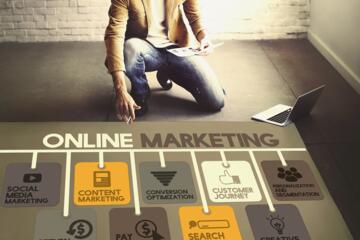Marketing is the backbone of any business, driving awareness, engagement, and sales. With so many options and techniques available, it’s important to have a clear, effective strategy. By focusing on the right approaches, businesses can connect with their target audience, enhance brand visibility, and build lasting customer relationships. In this article, we’ll explore essential marketing strategies that can help unlock success and foster growth.

1. Building a Strong Brand Identity
Your brand is more than just a logo or a name – it’s the personality and reputation of your business. Building a strong, consistent brand identity is essential for creating a lasting impression on your target market. Your brand should communicate your core values, mission, and unique selling propositions. Strong branding makes your business easily recognizable, sets you apart from competitors, and helps build trust with your audience.
2. Understanding and Segmenting Your Audience
Effective marketing begins with a deep understanding of your audience. Who are your customers? What are their needs, behaviors, and preferences? Segmenting your audience allows you to create tailored marketing messages that resonate with specific groups. Whether it's through demographic, geographic, or psychographic segmentation, targeting the right audience ensures your efforts are focused and more likely to succeed.
3. Embracing Digital Marketing
Digital marketing has become an essential tool for businesses of all sizes. Through digital channels like social media, email, and search engines, businesses can reach a larger, more targeted audience. SEO (search engine optimization) helps improve your website’s ranking, while social media marketing enables engagement and brand building. Paid ads, retargeting, and influencer marketing further enhance online visibility and drive traffic to your site.
4. Content Creation and Strategy
Content is king in the digital marketing world. By creating informative, engaging, and relevant content, businesses can not only attract visitors but also build credibility and trust. Whether it’s blog posts, videos, infographics, or podcasts, providing value through content helps educate and connect with your audience. A solid content strategy focuses on consistency and relevance, ensuring that your business remains top of mind for customers.
5. Leveraging Social Media Marketing
Social media platforms like Facebook, Instagram, LinkedIn, and Twitter are powerful tools for building connections with your audience. Social media marketing allows you to engage with potential customers, share updates, and promote special offers. Regular interaction on these platforms fosters a sense of community, builds brand loyalty, and can even encourage user-generated content to amplify your message.
6. Email Marketing for Customer Retention
Email marketing remains one of the most effective ways to nurture relationships with existing customers. By sending personalized emails with offers, updates, or helpful content, businesses can stay connected and keep their audience engaged. Segmenting your email list based on customer behavior or demographics can also improve targeting, increasing the chances of conversions.
7. Utilizing Paid Advertising
Paid advertising, such as Google Ads, Facebook Ads, and Instagram promotions, allows businesses to target specific audiences and drive immediate traffic. While it requires an investment, it can be highly effective in boosting visibility and attracting leads. The key is to optimize your campaigns by targeting the right audience, using compelling messaging, and analyzing results for continual improvement.
8. Monitoring and Analyzing Performance
One of the most powerful aspects of modern marketing is the ability to track and measure results. Using tools like Google Analytics and social media insights, businesses can monitor the performance of their marketing campaigns in real-time. This data helps identify what’s working, what needs improvement, and where to allocate resources for the best return on investment.
Conclusion
Marketing is not a one-size-fits-all approach; it requires a tailored strategy that addresses your business’s unique goals and audience. By building a strong brand, understanding your audience, embracing digital tools, and continuously optimizing your efforts, you can create a marketing strategy that drives business growth. Stay adaptable and be open to new trends, but always keep your core values at the center of your marketing efforts for long-term success.




